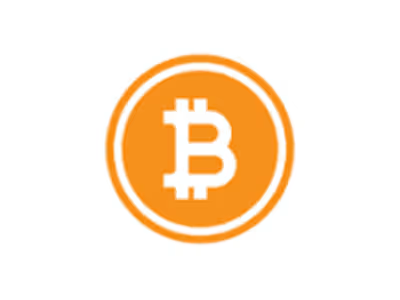The Rise of Decentralized Finance (DeFi): Transforming Tradition
By Solomon Afolabi
Introduction
The financial sector is undergoing a transformative shift driven by Decentralized Finance (DeFi), a movement that harnesses blockchain technology to create an economic ecosystem independent of traditional banking institutions. DeFi offers innovative alternatives to conventional financial services, reshaping how individuals and businesses interact with money. This article explores the groundbreaking innovations behind DeFi, the associated risks, and its potential for enhancing financial inclusion.
Understanding DeFi
Decentralized Finance encompasses various financial applications built primarily on blockchain networks like Ethereum. Unlike traditional finance, which relies heavily on intermediaries such as banks and brokers, DeFi leverages smart contracts—self-executing agreements with the contract terms coded directly into the blockchain. This decentralized approach allows for diverse financial activities, including lending, borrowing, trading, and earning interest, all without the oversight of centralized authorities.
Key Innovations
1. Smart Contracts: At the core of DeFi are smart contracts, which automate transactions and processes, minimizing the need for trust between parties. These contracts execute automatically when predefined conditions are met, reducing the likelihood of human error and fraud. For instance, the infamous DAO hack in 2016 highlighted vulnerabilities but also underscored the potential for self-governance in financial systems.
2. Lending and Borrowing Platforms: DeFi platforms like Aave, Compound, and MakerDAO enable peer-to-peer lending and borrowing. Users can lend their cryptocurrencies and earn interest, or borrow assets by providing collateral. This model can lower costs and expedite transaction times, providing more efficient access to capital.
3. Decentralized Exchanges (DEXs): Unlike traditional exchanges requiring user deposits, DEXs such as Uniswap and PancakeSwap allow users to trade directly from their wallets. This approach enhances liquidity and mitigates risks associated with centralized exchanges, such as hacks and systemic failures.
4. Yield Farming and Liquidity Mining: Users can earn returns by providing liquidity to DeFi protocols through yield farming and liquidity mining. By depositing their assets into liquidity pools, users can earn interest, transaction fees, and governance tokens, fostering a collaborative financial environment.
5. Insurance Protocols: Platforms like Nexus Mutual and Cover Protocol offer decentralized insurance options to address unique risks in DeFi. These services protect users against smart contract failures, hacks, and other potential losses, bolstering confidence in this rapidly evolving space.
6. Cross-Chain Interoperability: Innovations like cross-chain bridges enable DeFi applications to interact across different blockchain networks. This interoperability enhances user experience and expands functionality by allowing assets and data to move seamlessly between platforms, breaking down silos in the blockchain ecosystem.
Potential Risks of Decentralized Finance (DeFi)
While DeFi offers exciting opportunities, it also presents inherent risks:
1. Smart Contract Vulnerabilities: Bugs in smart contract code can lead to significant losses. High-profile hacks, such as the $600 million Poly Network exploit, serve as stark reminders of the need for rigorous code audits and testing.
2. Regulatory Uncertainty: As DeFi expands, regulators worldwide are scrutinizing its impact. The lack of a clear regulatory framework may lead to future regulations that could affect DeFi operations and user rights.
3. Market Volatility: The cryptocurrency market is notoriously volatile. Sudden price fluctuations can adversely affect collateralized loans, potentially leading to liquidations and significant losses for users.
4. User Error and Complexity: The complexity of DeFi platforms can be daunting for newcomers. Missteps in executing transactions or misunderstandings of platform operations can result in irreversible losses, emphasizing the need for user-friendly interfaces and education.
5. Risks of Liquidity: Some DeFi platforms may face sudden liquidity shortages, making it difficult for users to withdraw funds during times of market stress. This underlines the importance of cautious investment and robust liquidity management.
Impact on Financial Inclusion
One of DeFi's most transformative aspects is its potential to enhance financial inclusion, particularly for underserved populations. Traditional banking systems often exclude individuals due to barriers like geographical limitations, lack of credit history, or high fees. DeFi addresses these challenges in several key ways:
1. Widespread Accessibility: Anyone with internet access can engage with DeFi platforms, allowing unbanked and underbanked individuals to participate in the global economy.
2. Lower Transaction Costs: By eliminating intermediaries, DeFi can significantly reduce transaction fees, making financial services more affordable and accessible to a broader audience.
3. Global Participation: DeFi operates on a borderless framework, enabling users from different countries to interact without the complications of currency conversions or international banking regulations, fostering a more inclusive financial environment.
4. Empowerment through Control: DeFi empowers users by giving them full control over their assets. Unlike traditional banking, where institutions often dictate terms and access, DeFi promotes a user-centric financial landscape.
Conclusion
The rise of Decentralized Finance is revolutionizing the traditional banking system by providing innovative solutions that enhance accessibility, efficiency, and user empowerment. While challenges remain, particularly regarding security and regulation, the potential benefits—especially in promoting financial inclusion—are profound. As the DeFi ecosystem continues to evolve, ongoing dialogue between regulators, developers, and users will be crucial in shaping a robust, sustainable landscape that prioritizes security, accessibility, and equity. The future of finance may indeed lie in decentralized systems that promote inclusivity and transparency, fundamentally reshaping our understanding of money.
Like this project
Posted Oct 18, 2024
In this insightful exploration, Solomon Afolabi delves into the transformative impact of Decentralized Finance (DeFi) on traditional banking.





